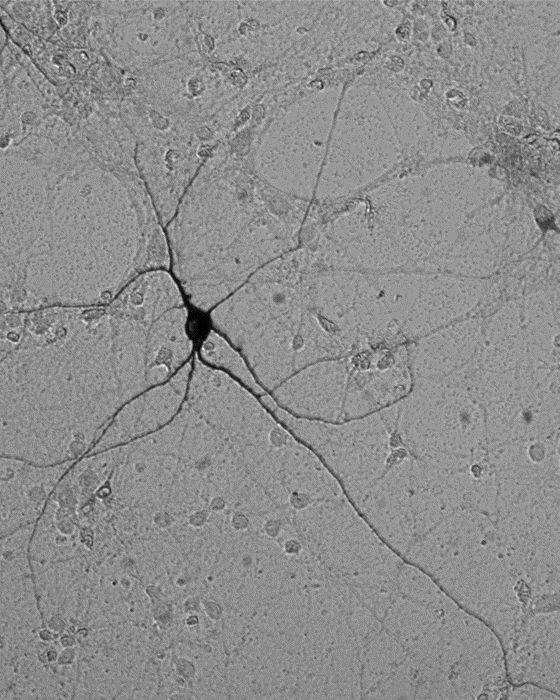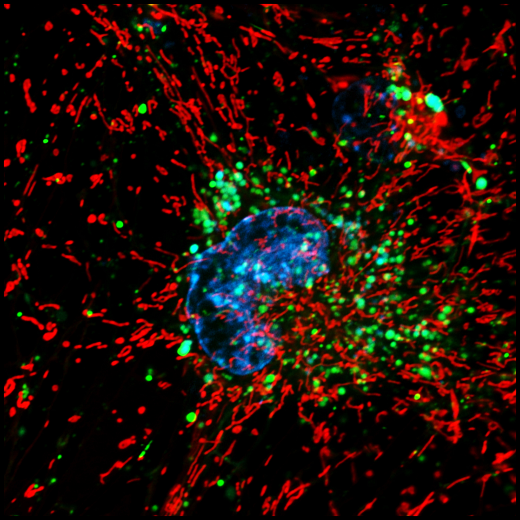Molecular Neurology
 A nNOS (+) neuron identified by the NADPH-diaphorase staining in a neuronal striatal culture. |
The focus of our research concerns the study of neurodegenerative mechanisms that occur in conditions like brain aging, Amyotrophic Lateral Sclerosis (ALS), stroke, Huntington’s disease (HD), and Alzheimer’s disease (AD). The group has a major interest in the understanding of the molecular determinants of the neuronal loss and excitotoxic mechanisms driven by overactivated glutamate receptors (1,2). Over the years, our team has employed advanced ionic imaging and electrophysiological techniques along with genomic and proteomic approaches to provide critical insights into the dynamics of the intracellular changes occurring in living neurons and glial cells exposed to excitotoxic challenges. These techniques have been employed in “in vivo” and “in vitro” models of ALS, HD, and AD. Our team has also employed pharmacological and non-pharmacological approaches to delay cognitive decline in aging individuals as well as persons affected by Mild Cognitive Impairment (MCI) and AD (3,4). To that aim, we have used a wide range of techniques, including proteomics, metabolomics, genomics, and neuroimaging (fMRI, MRI) to investigate the response to cognitive training programs, anti-degenerative as well as cognitive-enhancing compounds. |
Super-resolution confocal image of a mouse astrocyte stained for mitochondria (red), lysosomes (green), and the nucleus (blue).
- Sensi SL, Paoletti P, Bush AI, Sekler I. Zinc in the physiology and pathology of the CNS. Nat Rev Neurosci. 2009 Nov;10(11):780-91. doi: 10.1038/nrn2732.
- Granzotto A, Sensi SL. Intracellular zinc is a critical intermediate in the excitotoxic cascade. Neurobiol Dis. 2015;81:25-37. doi:10.1016/j.nbd.2015.04.010
- Brem AK, Sensi SL. Towards Combinatorial Approaches for Preserving Cognitive Fitness in Aging. Trends Neurosci. 2018 Dec;41(12):885-897. doi: 10.1016/j.tins.2018.09.009 Delli Pizzi S, Punzi M,
- Sensi SL. Functional signature of conversion of patients with mild cognitive impairment. Neurobiol Aging. 2019;74:21-37. doi:10.1016/j.neurobiolaging.2018.10.004
 |
||








